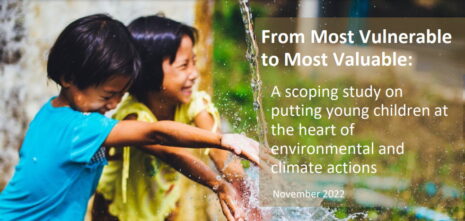Global Scales for Early Development (GSED) v1.0
This open-access package is designed to provide a standardized method for measuring development of children birth to 36 months of age at population and programmatic levels globally. The GSED measures capture child development holistically through a common unit, the Developmental score (D-score). The package includes the Short and Long Forms, scoring guide, adaptation and translation guide and a technical report that summarizes the creation process of the GSED, the validation methodology and psychometric properties.Read More →







